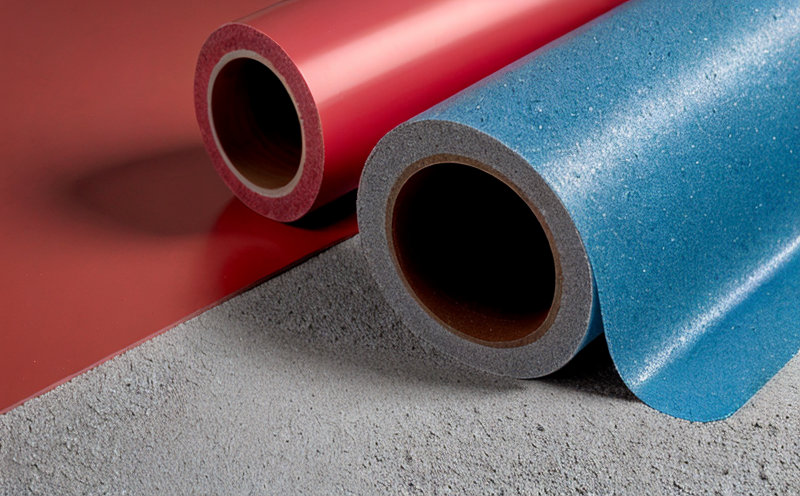FAA Fuel Line Fire Resistance Testing
The Federal Aviation Administration (FAA) mandates rigorous testing of fuel lines to ensure they meet fire resistance standards. This is critical for aviation safety, as fuel lines are a potential ignition source in the event of a fuel leak or spill. The FAA specifies that fuel lines must withstand exposure to high temperatures and flames without failing or causing a hazardous situation.
Our laboratory specializes in conducting FAA-compliant fuel line fire resistance tests using industry-standard methods such as ASTM D7568, which outlines the procedures for testing fuel system components under specified conditions. We employ advanced thermal chambers capable of simulating real-world environments where fuel lines might encounter extreme temperatures and flames.
The testing process involves preparing a representative sample of the fuel line according to FAA guidelines. This includes ensuring that the specimen is free from defects, adheres to specific length and thickness requirements, and is properly secured in the test fixture. Once prepared, the specimen undergoes exposure to a controlled flame for a specified duration, typically 10 minutes.
During testing, we monitor various parameters such as temperature rise, flame propagation rate, and the integrity of the fuel line's seal. After exposure, the fuel line is inspected for signs of damage or failure. Acceptance criteria include ensuring that the fuel line remains intact without any visible cracks, splits, or other defects. Additionally, the internal sealing must remain effective after exposure to flames.
The results of these tests are meticulously documented and reported in compliance with FAA specifications. Our reports provide detailed information on the test parameters used, specimen preparation, testing conditions, and outcomes, allowing our clients to make informed decisions about their fuel line materials and designs.
Our expertise in this area ensures that we not only meet but exceed FAA requirements, providing peace of mind for our aerospace and aviation clients. By leveraging cutting-edge technology and adhering strictly to international standards, we deliver accurate and reliable test results that can be trusted by regulatory bodies and industry professionals alike.
Customer Impact and Satisfaction
The FAA's stringent fuel line fire resistance testing is not just a compliance requirement; it significantly impacts the design, manufacturing, and safety of aircraft. Our clients benefit from this service in several ways:
- Enhanced Safety: By ensuring that fuel lines meet strict fire resistance standards, we contribute to overall aviation safety.
- Regulatory Compliance: Our testing helps our aerospace and aviation customers stay compliant with FAA regulations.
- Quality Assurance: We provide detailed reports that allow for thorough quality assurance checks.
- Cost Savings: By identifying potential issues early in the development process, we help clients avoid costly rework or redesigns.
We pride ourselves on delivering high-quality service and maintaining excellent customer satisfaction. Our team of experts is dedicated to understanding each client's unique needs and providing tailored solutions that meet their specific requirements.
International Acceptance and Recognition
The FAA fuel line fire resistance testing we offer is recognized globally, ensuring compliance with international standards such as EN 91-0. This means our clients can confidently use the results of these tests in various markets around the world.
Our laboratory adheres to strict quality control measures and follows rigorous protocols to ensure consistent and reliable test results. We are committed to maintaining the highest level of integrity and accuracy, which is why we have earned a reputation for excellence within the aerospace and aviation industries.
We continuously strive to stay updated with the latest developments in testing methodologies and equipment. This commitment to innovation allows us to provide services that meet the evolving needs of our clients, ensuring they are always at the forefront of industry best practices.
Environmental and Sustainability Contributions
In addition to improving aviation safety and regulatory compliance, our FAA fuel line fire resistance testing also has positive environmental implications. By ensuring that fuel lines can withstand harsh conditions without failing or causing leaks, we help prevent potential spills and emissions from aircraft.
The use of high-quality materials in the production of fuel lines is crucial for long-term sustainability. Our laboratory works closely with our clients to select sustainable materials that not only meet FAA standards but also contribute positively to environmental conservation efforts.
We are committed to reducing waste and minimizing our carbon footprint by implementing efficient testing processes and recycling where possible. By focusing on these aspects, we aim to create a more sustainable future for the aerospace industry while maintaining stringent safety standards.





